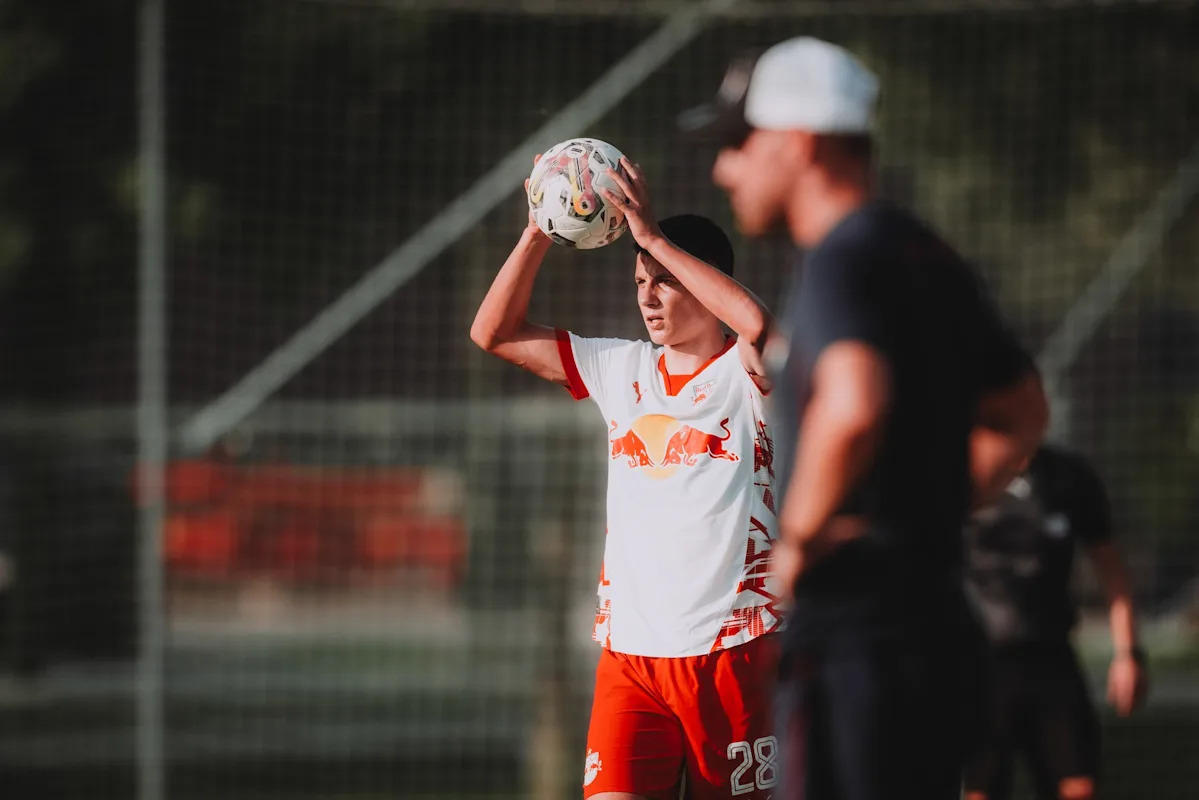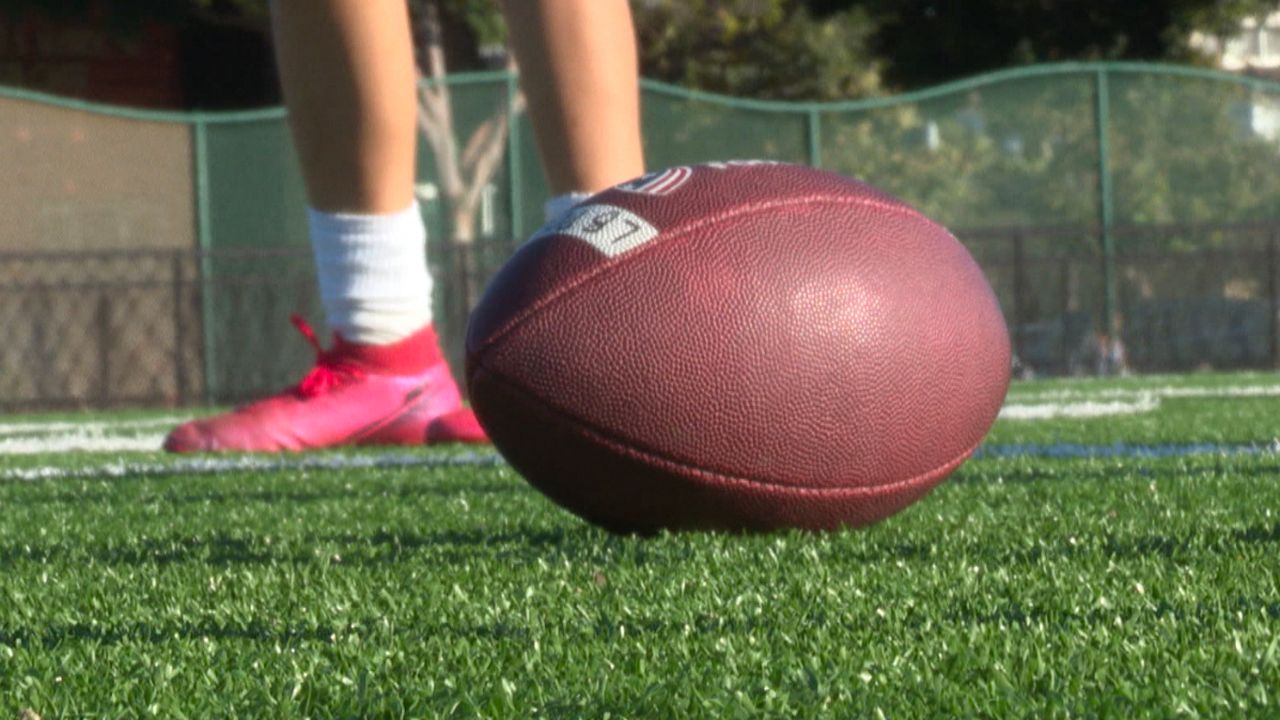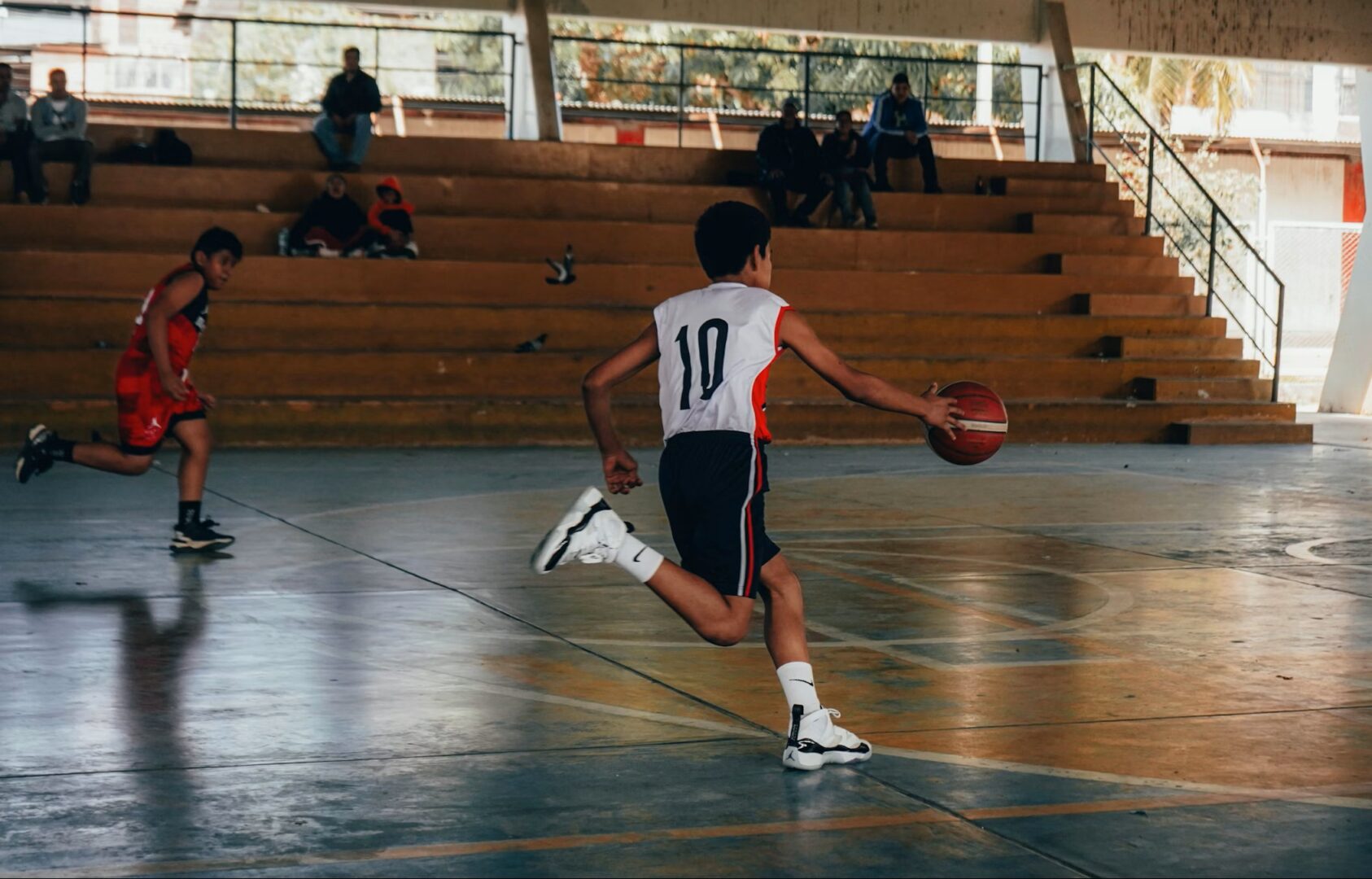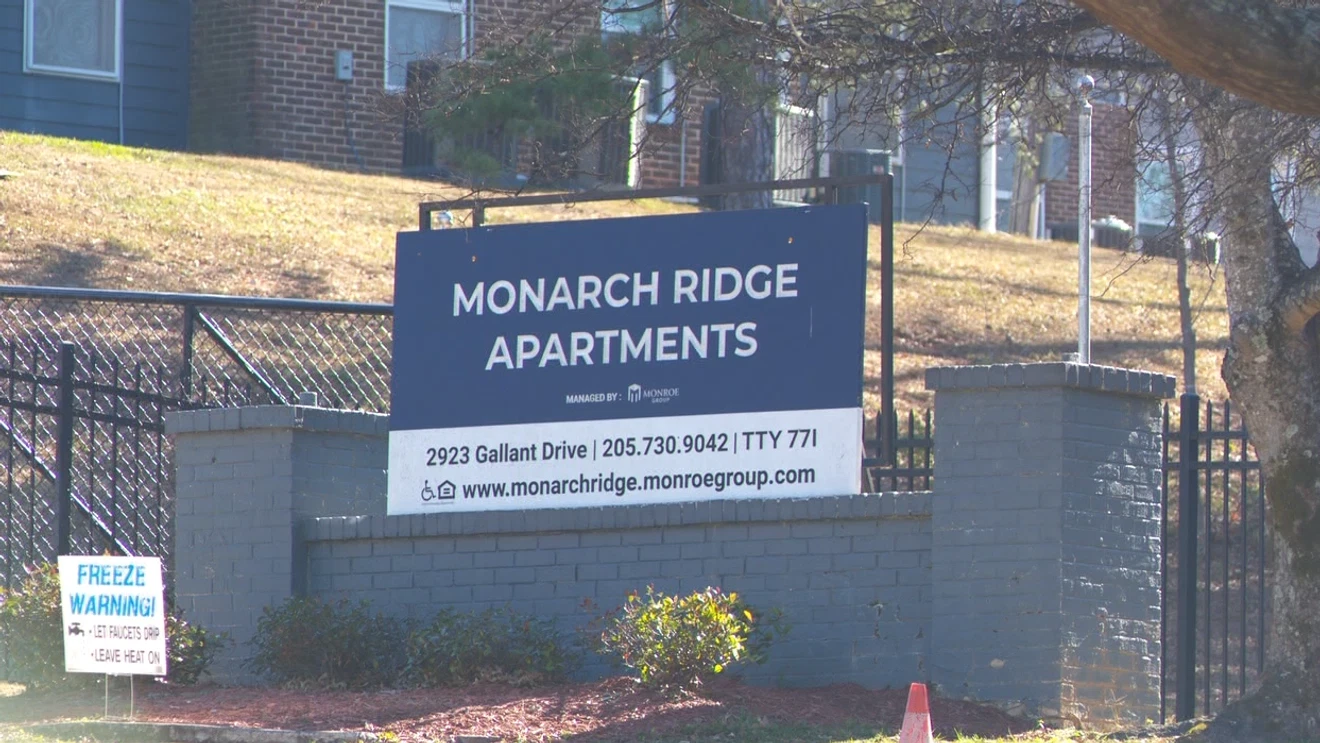Rec Sports
Youth teams face weeks of destiny

Highlights to take into decisive phase
What a great success for our U18 side at the Red Bull Football Academy! Between 22 and 24 April, our young hopefuls contested the Wings Cup against talents from RB Leipzig, PSV Eindhoven, New York Red Bulls, Southampton FC and Red Bull Bragantino – and ended up as winners! Other youth teams of ours are heading into the decisive phase of the season, making it a great time to take another youth update.
The first edition of the Wings Cup was notable for its innovative approach – on the first day, the players were split into mixed teams. Team-mates therefore became rivals as pals lined up against one another for eight minutes. It was all about individual performances, such as goal involvements or successful dribbles. On the second day, the proteges of Florens Koch were together again – and made quite an impression in the four v four competition.
Advertisement
With five wins in five and a goal difference of +21, our boys showed just what they are capable of. Along with the team winning the title, Benji Sesko presented youngster Nico Masching with the trophy for the Most Impactful Player.
Final straight in domestic leagues

Our academy boys are looking to take the positive momentum into the ÖFB Jugendliga. The U18 side unbeaten since November took an impressive win yesterday against their counterparts from LASK, to set up a frantic title battle. Our boys have it all in their own hands as they prepare to face the big two Vienna clubs in the coming week in a three-way race. The winners will make it into the 2025/26 UEFA Youth League. Koch’s crew will hope to be inspired by the incredible run from our youngsters in this season’s competition!
Advertisement
The two teams below that are also right in their respective title races. The U16 league is also heading to a thrilling climax – with a practically equal three-way battle with St. Pölten and Austria Vienna – while the U15 team can get the alcohol-free champagne on ice. With three points more than their closest rivals Rapid and one match in hand, they are well set to retain their title.
Big plans in the women’s game

Our U20w girls are on a well-earned break from competitive action following their fantastic Future League triumph in March, while preparing with friendly matches for the forthcoming ADMIRAL Women’s Bundesliga season, in which FC Red Bull Salzburg will compete for the first time in co-operation with FC Bergheim. There is a good chance that a few of our Future League heroes are involved in that next season.


Rec Sports
Benefit concert at the Hard Rock aims to raise money for young kids

SIOUX CITY (KTIV) – The Siouxland Sports Academy is planning to rock out at the Hard Rock Hotel and Casino during a benefit concert event.
The benefit concert featuring Above the Covers is expected to take place on Friday, Dec. 19.
“We are very excited to be able to host this event in this great facility with this great local band to raise money for kids in need. It is very important to us that we are able to provide opportunities to kids regardless of socioeconomic status,” said SSA Executive Director Dustin Cooper.
Doors open at 6:30 p.m. for a silent auction and social. The band performs at 7:30 p.m.

The Siouxland Sports Academy says its organization is a 501c3 nonprofit that works to create opportunities for young people in Siouxland.
The nonprofit also says 100% of the proceeds in ticket sales and at the auction will go towards financing local youth sports scholarships.
“During the concert, there will be silent auction items up for grabs that include priceless autographed sports memorabilia, unbelievable sports experiences, and at intermission of the concert, a trip to Turks and Caicos will be live auctioned!” said Siouxland Sports Academy.
Tickets are available on the Hard Rock Hotel and Casino’s website.
Want to get the latest news and weather from Siouxland’s News Source? Follow these links to download our KTIV News app and our First Alert Weather app.
Copyright 2025 KTIV. All rights reserved.
Rec Sports
National flag football tournament heads to Eau Claire

EAU CLAIRE, Wis. — Eau Claire has flagged down a major sporting event for 2026: the Pylon 7on7 Flag Football Tournament is heading to the Sonnentag Field House from March 14 to 15.
The tournament — a traveling flag football tournament for high school athletes — is expected to welcome about 1,000 athletes, coaches, families and fans. Pylon 7on7 said it will welcome more than 30 teams to the Wisconsin-based event.
The Eau Claire tournament will be indoors.
Pylon 7on7 is a “critical exposure platform” for high schoolers looking to play football in college. Over the past 20 years, more than 3,000 student-athletes who have played in Pylon 7on7 committed to Division I programs. More than 300 players made it to the NFL.
“We’re extremely excited to welcome Pylon 7on7 to Eau Claire,” said Lucas Connolly, sports relationship manager for Visit Eau Claire. “This event brings elite competition to our community and provides young athletes with a platform to compete, be seen, and develop, while highlighting the Sonnentag Center as a top-tier venue for national sporting events.”
Visit Eau Claire said it expects a positive, direct economic impact from the tournament.
“This tournament is another example of how Eau Claire continues to grow as a destination for youth sports, and we are excited to partner with Visit Eau Claire to welcome Pylon 7on7 Football and the many athletes, families, and visitors who will experience our community,” said Steve Kirk, Interim General Manager of the Sonnentag Center.
Eau Claire is just one site of more than two dozen Pylon 7on7 tournaments taking place from Jan. through May 2026. Nationals will take place in Indianapolis on May 30 and 31.
Rec Sports
Tree collapses onto 2 young children waiting for school bus

TWIN FALLS, Idaho (KMVT/Gray News) – Two children in Idaho are critically injured after a tree fell on them while they were waiting for the school bus.
The Twin Falls County Sheriff’s Office said high winds caused rotten trees to fall on power lines before collapsing on the children.
The kids, both under the age of 10, and an older sibling were waiting outside for their bus when the tree collapsed. According to the sheriff’s office, the older sibling was not injured.
Aaron Hudson, the Twin Falls fire deputy chief, told KTVB first responders had to first get the kids out from the tree and downed power lines before they could prepare them for transport.
The sheriff’s office said one of the children was taken to the hospital by ambulance, while the other was airlifted.
According to Hudson, the weather conditions caused difficulties during transport. He said that it prevented the helicopter from going any further than the local hospital.
The family of the children has started a GoFundMe to help cover medical expenses.
Copyright 2025 KMVT via Gray Local Media, Inc. All rights reserved.
Rec Sports
360 Hoops Targets 2026 for National Market Entry

As youth sports participation costs rise and facility availability remains a bottleneck for growth, US-based 360 Hoops has announced a formal commercial rollout for 2026.
The company, which specialises in a patented three-basket hardware system and a proprietary 3v3v3 gameplay format, is positioning itself to address the primary pain point for facility operators: revenue density per square metre.
The pivot from prototype to national property follows a 2025 validation phase that included visibility on ESPN’s “The Ocho” and integration into US youth development programs.
By allowing five units to be deployed on a single standard basketball court, the system can support up to 60 active athletes simultaneously, a six-fold increase over traditional 5v5 training sessions.
Co-founder of 360 Hoops, Anthony Gomez, noted that the value proposition for club directors and private complexes hinges on this spatial efficiency.
“It really comes down to one question: how much value can you generate per square foot?” Gomez said.
The business model is built on vertical integration, combining high-margin unit sales with long-term revenue pathways including sanctioned tournament rights, licensing, and brand partnerships.
This “ecosystem” approach seeks to create a defensible category that insulates the brand from competitors—a tactic often seen in the rapid commercialisation of sports like pickleball and padel.
The organisation’s credibility is supported by the involvement of Mike Brey, an assistant coach for the NBA’s Atlanta Hawks, who serves as an investor and advisor.
His presence suggests a focus on ensuring the technical skills developed in the 360-degree format are transferable to the traditional game, a necessity for long-term adoption by governing bodies and schools.
With a Year 1 target of 30 markets, the company plans to establish flagship complex partnerships before expanding into schools and community parks.
The non-stop 14-minute game format offers a high-density content opportunity that aligns with current trends in fast-paced, urban sports consumption.
Don’t miss out on the latest in sports business – Subscribe today to the free Ministry of Sport newsletter and stay ahead of the game. For even more exclusive insights, event tickets, professional development and networking events, become a MoS Member today!.
Rec Sports
Shooting ruled accidental at Monarch Ridge, spotlight returns to troubled complex

A weekend shooting at Monarch Ridge Apartments, initially investigated as a homicide, has been ruled accidental by the Jefferson County District Attorney’s Office. Despite the ruling, the incident has reignited concerns about safety at the complex, which has a history of violence.
Residents report that court-ordered safety measures, including surveillance cameras, license plate readers, security patrols, and a gated entrance with a guard, are now in place. However, some residents, like Dominic Lewis, believe the violence stems from outsiders. “The chaos it comes from outsiders that come up here. It’s not really the residents,” Lewis said.
The shooting involved an uncle and his nephew during a party inside an apartment. Although the incident was deemed accidental, it has drawn attention back to the complex’s safety record. Last year, the city of Birmingham filed a public nuisance lawsuit against Monarch Ridge after the fatal shooting of 21-year-old Asia Poole. The case settled in January, mandating the implementation of security measures.
While residents acknowledge the visible security improvements, some express concerns about the atmosphere they create. “I think a lot of this is really… adds to the chaos because you really… to be honest with this gate you really kind of feel in prison,” Lewis said. He emphasized the need for a more caring approach and long-term solutions, having recently met with City Attorney Nicole King to discuss potential paths forward.
The settlement includes a year-long court oversight, set to expire next month, leaving the future of these measures uncertain.
Rec Sports
Agyemang wins Young Sports Personality of the Year | News

Michelle Agyemang has been named the BBC Young Sports Personality of the Year for 2025.
Celebrating athletes who make history with their performances, the prestigious awards were held on Thursday night, and Michelle was selected by a panel of experts as the best young talent across all of British sport.
She came out on top against the previous winner Luke Littler who won the World Darts Championship this year, as well as cricketer Davina Perrin who became England’s second-top run scorer in the 2025 Women’s U19 T20 World Cup.
Michelle follows in the footsteps of other greats who have won the Young Sports Personality of the Year prize, including Wayne Rooney and Sir Andy Murray, while she is the second Gunner to win the prize while at the club, with Theo Walcott collecting the trophy in 2006.
Michelle enjoyed a successful season on loan at Brighton & Hove Albion last season, scoring five times in 22 appearances, before lighting the international stage on fire with England. Our striker scored 41 seconds into her Lionesses debut in the UEFA Nations League against Belgium, earning her a spot in the squad for Euro 2025.
She repaid Sarina Wiegman’s faith, scoring vital late equalisers against Sweden and Italy in the knockout stages, in matches England went on to win as they retained their title, and saw Michelle named the Young Player of the Tournament.
She also won the Golden Girl trophy as Europe’s best young player, and was nominated for the prestigious Kopa Trophy, handed to the world’s top under-21 female footballer.
Read more
Agyemang wins Young Player of the Tournament
Copyright 2025 The Arsenal Football Club Limited. Permission to use quotations from this article is granted subject to appropriate credit being given to www.arsenal.com as the source.
-

 Motorsports3 weeks ago
Motorsports3 weeks agoJo Shimoda Undergoes Back Surgery
-

 Motorsports1 week ago
Motorsports1 week agoSoundGear Named Entitlement Sponsor of Spears CARS Tour Southwest Opener
-

 NIL3 weeks ago
NIL3 weeks agoBowl Projections: ESPN predicts 12-team College Football Playoff bracket, full bowl slate after Week 14
-

 Rec Sports3 weeks ago
Rec Sports3 weeks agoHow this startup (and a KC sports icon) turned young players into card-carrying legends overnight
-

 Rec Sports3 weeks ago
Rec Sports3 weeks agoRobert “Bobby” Lewis Hardin, 56
-
Sports3 weeks ago
Wisconsin volleyball sweeps Minnesota with ease in ranked rivalry win
-

 Motorsports1 week ago
Motorsports1 week agoDonny Schatz finds new home for 2026, inks full-time deal with CJB Motorsports – InForum
-

 Motorsports3 weeks ago
Motorsports3 weeks agoIncreased Purses, 19 Different Tracks Highlight 2026 Great Lakes Super Sprints Schedule – Speedway Digest
-

 Rec Sports2 weeks ago
Rec Sports2 weeks agoHow Donald Trump became FIFA’s ‘soccer president’ long before World Cup draw
-

 Motorsports3 weeks ago
Motorsports3 weeks agoMichael Jordan’s fight against NASCAR heads to court, could shake up motorsports
































